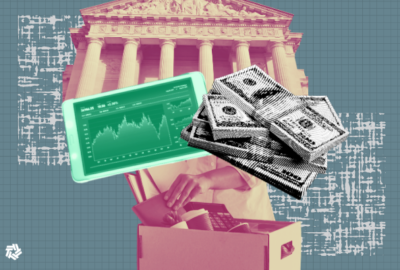Mastering your 3-wheel retirement vehicle
Do you suffer from pension envy? Many current and retired federal employees do!
Do you suffer from pension envy? Many current and retired feds do!
Most people currently on the federal payroll will retire under the “new” (circa 1980s) Federal Employee Retirement System, known affectionately as FERS. Unlike the plan it replaced, the Civil Service Retirement System (CSRS), FERS takes some practice to get the maximum mileage out of it. But driving right brings much bigger rewards!
CSRS was designed for lifers. The assumption was that people would put in 20, 30 or 40 plus years before retiring. A great annuity, indexed to inflation, is ahead of them based on salary and length-of-service. But most people who come to work for the government don’t make it a career. When they leave government, they have their Thrift Savings Plan account. And get back their contributions to the retirement fund. But that’s it. FERS folks who come and go have their TSP contributions, with a 5% government match, and Social Security they can take to another job.
Many FERS-covered employees envy their CSRS-covered office mates. Many CSRS workers suffer from TSP pension envy!
Whatever system you are under, there are things you should (and should not) do to make the most of it. Like today’s entry, a fed who started out cleaning toilets, joined the military, came back into government, became a TSP millionaire and is about to retire a very happy and deserving camper. He’s got lots of tips to help you master the tricky-but-worth-it FERS retirement program. Here’s his story, Hope you enjoy AND learn something at the same time:
Mike. I’m still here reading your articles. You previously wrote about me as the Janitor to Millionaire. I started as that janitor making about $7.36 a hour cleaning toilets in 1976. That was great money and I was lucky to get a federal job while putting myself through college. Then I worked for the Census Bureau in graduate school. Then it was off for a decade in the Marine Corps and Desert Storm. Eventually I returned to the civilian service in 1995. Of course I have been maximizing my contributions to the TSP since 1995 and now have around $1.6M. The TSP is one leg of my 3-legged retirement plan.
As of October, 2021 I will have 40 years of government service. I paid about $13,000 (buy-in) when I became a civilian in 1995 to get OPM to count my military and janitor time for my FERS annuity. I moved between agencies over the years. I tried not to stagnate and stay in one place too long. I kept looking for the next step up the ladder. I am now capped out at about $221K a year in salary. My agency gives pay raises in May so I will work three years from my last big raise (Retire in May 2024). Because I am over 62 years old, my FERS pension will get a little boost because the multiplier for the annuity increases with age from 1% to 1.1%. That little boost will increase my annuity by over 4% for the rest of my retirement. I plan to work until May 2024 or about 42.5 years. I will get credit for 42.5 years of service plus an extra 4.25 representing that little boost in the multiplier for a total of 46.25% of my high-3 salary. I am capped out and may see little 1% pay increases but my pay should be almost the same for the last three years of service. My pension will be around $102,000. ($221,000 * .4625 = $102K). This is the second leg of my retirement stool.
Of course I am also eligible for Social Security. If I retire as planned in May of 2024, I will be right at my 66th birthday. I plan to take SS between 67 and 70 years old and expect a payment of around $36,000 a year. I also have a small $5,500 disability pension from my military service. This is the third leg of my retirement stool and these pensions will add up to $41.5K.
Other considerations:
- Lots of people retire on January 1, to take advantage of the raise pay for the next year when they get the buy-out of their accumulated leave. I consider this increase to be pretty small. So I plan to work into the new year but for a different reason. By working for a few more months, I will be able to deposit 100% of my authorized contribution to my TSP and get matching dollars for some of it from the government. That is one more year of contributions.
- With my FERS annuity of $102.5K and my military pension of $5.5K totaling $108K, I plan to delay taking social security for as long as possible. When I add in SS, my total pensions will be $144,000 per year.
- I will continue to pay for the Federal Employees Health Benefit plan in retirement. It is just too good to let go of. I am not sure Medicare makes sense for me. My high annual salary means I will pay a much higher premium for Medicare. I plan to do a little deeper analysis of this topic as retirement gets closer.
- I never intended to ever touch my TSP or other tax deferred plans. I figured I would take what was required when I was required. But I never thought I would need it because of my annuities. I have over $2.5M invested right now and that is all because of smart saving on minimum salaries. I didn’t start making the big money until a few years ago with my last promotion. By age 72 I expect to be approaching $4M invested when I have to start pulling money out. I did a quick calculation and I will have to withdraw around $100K a year to keep the IRS happy even though about half of the money is in Roth accounts.
I never imagined these numbers when I started cleaning toilets just to go to college. But I attended retirement lectures from the start and learned to maximum my benefits like FEHB, TSP, FERS, etc. I also read your column and learned from your experts. I also learned that you could control some of the numbers in calculating your FERS annuity. I have maximized the multiplier by staying to age 62. I have changed jobs and agencies to get promotions and increase salary. And I recognized that I need to gain years to increase that multiplier a little bit for every year of service. I think it has worked pretty well for me. I know my situation is unique and I’m grateful for where I stand today.
I’m pretty happy and waiting to retire. I am comfortable with you using my above information but leave out my name and agency.
–Janitor to Millionaire
Nearly Useless Factoid
By Alazar Moges
The reason that American currency began to be printed as the color green is because in the late 19th century, counterfeiting was a big issue. Counterfeiters would scratch off faded ink from bills to change the dollar amount or take photos and pass them off as real. The green-black ink printed on the back (hence the term “greenbacks”) was less likely to fade and the green wouldn’t show up in the black and white photos of the time, helping thwart counterfeiting attempts.
Source: Forbes
Copyright © 2025 Federal News Network. All rights reserved. This website is not intended for users located within the European Economic Area.
Mike Causey is senior correspondent for Federal News Network and writes his daily Federal Report column on federal employees’ pay, benefits and retirement.
Follow @mcauseyWFED






